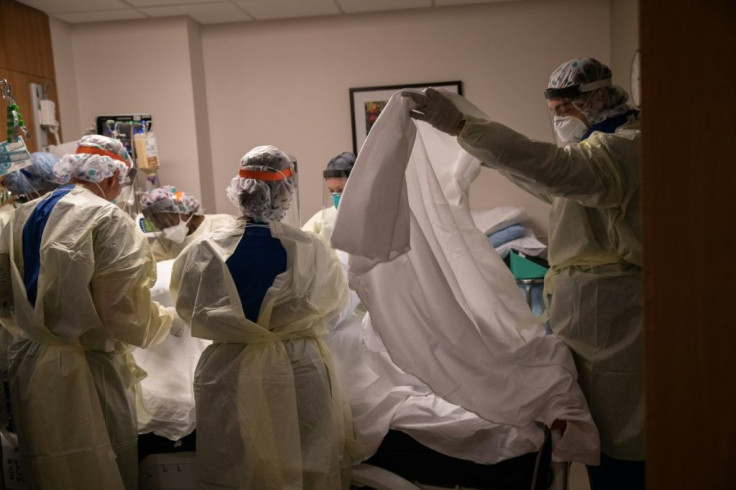Kidney Of Woman Who Died Of COVID-19 Complications Transplanted To 50-Year-Old Man
KEY POINTS
- The woman was admitted to the hospital in March 2021 due to severe COVID-19 pneumonia
- She died following hypoxic brain injury but was COVID-19 negative at the time of her death
- The transplant happened within 24 hours of the donor’s death
A kidney of a woman in her 30s, who died of COVID-19 complications, has been safely and successfully transplanted into a 55-year-old fully-vaccinated man.
According to researchers of the Johns Hopkins University School of Medicine, this proves that healthy organs from patients who died from COVID-19 can still be used for transplants.
In a peer-reviewed study published Monday, the experts said that the woman was admitted to the hospital in March 2021 due to severe COVID-19 pneumonia. She was eventually placed on extracorporeal membrane oxygenation [ECMO], which is a blood pump outside the body to give oxygen to the body. But, the woman developed hypoxic brain injury leading to her brain death.
However, her kidney functions were stable during her hospital course, and she had tested negative for the virus before death.
Doctors then collected the tissue sample from her kidney and aorta [a blood vessel known to have a high level of receptors for SARS-CoV-2] and subjected them to sensitive molecular testing for evidence of the virus.
According to the researchers, this is also one of the first documented cases in which tissue samples from the donor were analyzed with sophisticated tools that can detect molecular evidence of the virus.
The 55-year-old recipient was a man with end-stage kidney disease who had been on dialysis for more than five years. The patient was fully vaccinated and had no prior COVID-19 history. He also tested negative for the virus on the day of transplantation.
The transplant happened within 24 hours of the donor’s death. The patient underwent a COVID-19 test by a PCR nasal swab test 20, 30, and 90 days following the transplantation and tested negative every time. He also had no signs or symptoms of the virus.
"The recipient has been off dialysis with excellent kidney function since the transplant," Niraj Desai, M.D., surgical director of the Kidney and Pancreas Transplant Program at Johns Hopkins Medicine, said in the paper.
“We know our case may not be representative of many possible COVID-19 donors, particularly since the donor was negative for COVID-19 at the time of transplantation," said Hamid Rabb, M.D., medical director of the Johns Hopkins Kidney Transplant Program.
"However, it’s a step forward using highly sensitive molecular testing to show it can be safe to use organs from deceased COVID-19 donors. Organs can be individually considered for kidney transplants instead of being routinely discarded," he added.

© Copyright IBTimes 2024. All rights reserved.











